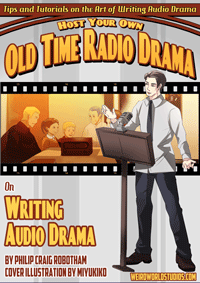Learning from Aristotle – The Poetics of Aristotle Applied to Audio Drama – Part 6 (final)
Finally, I present the rather anti-climactic end to my look at Aristotle’s Poetics. Here Aristotle explores a few ancillary topics before giving some final advice on what constitutes a good drama. By finishing this final summary, though its value to writers is, I think, limited, it does give this project some sense of closure.. Chapter […]

